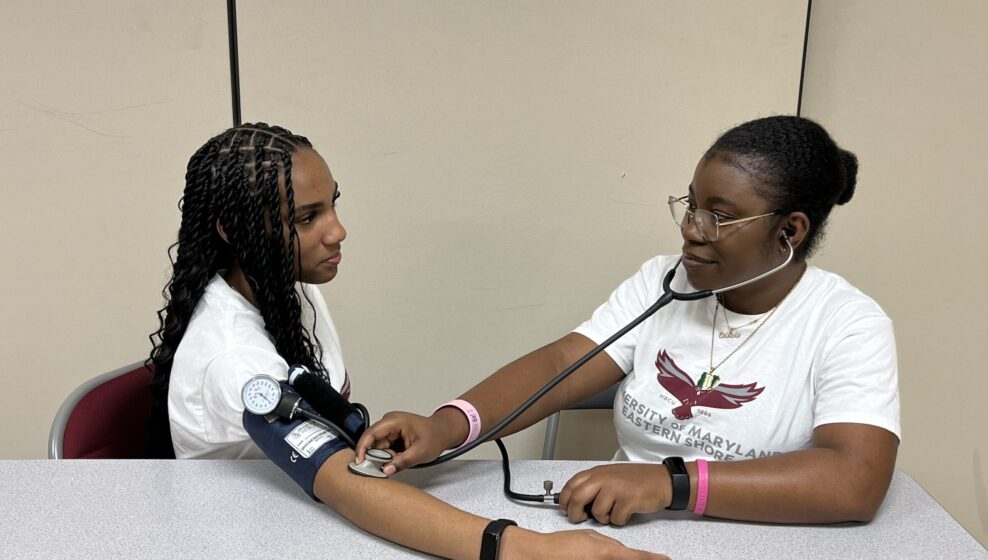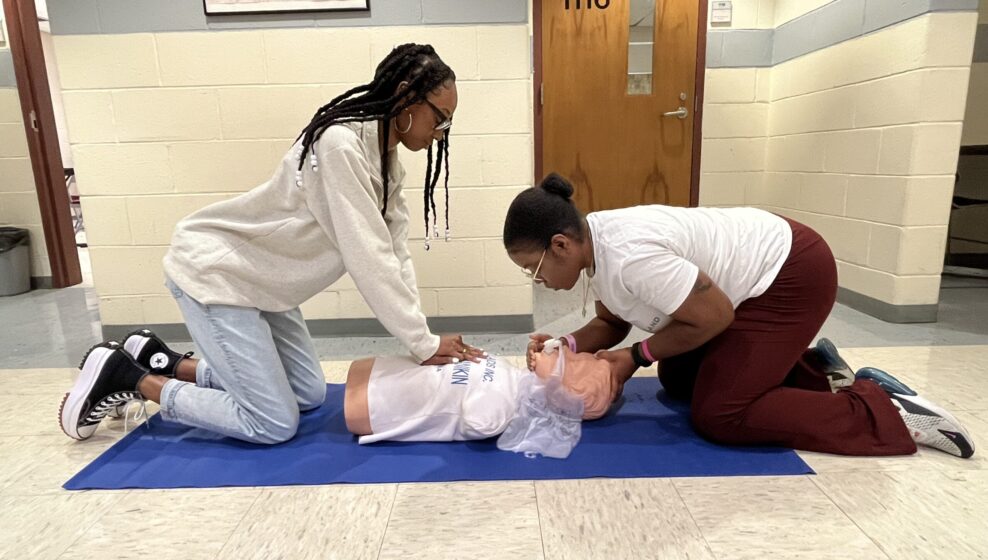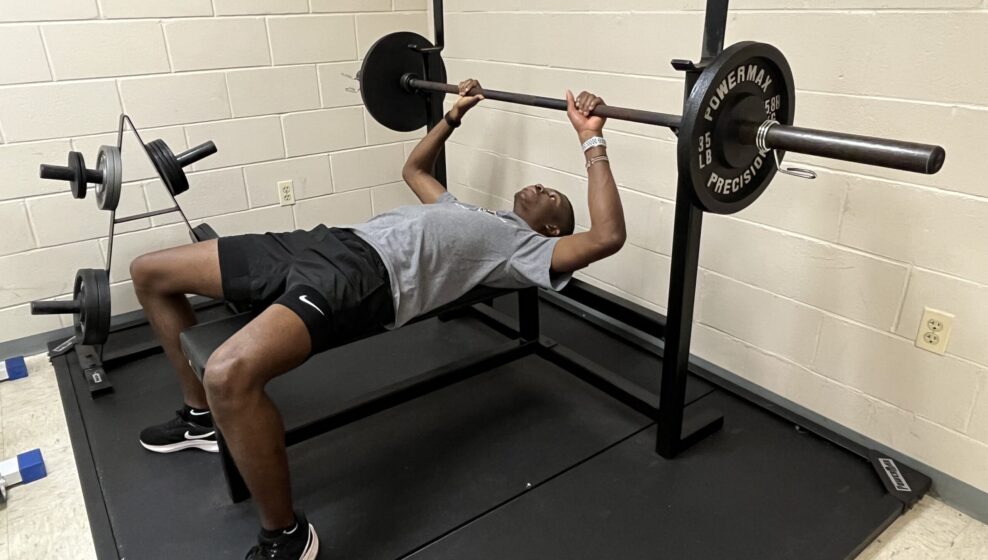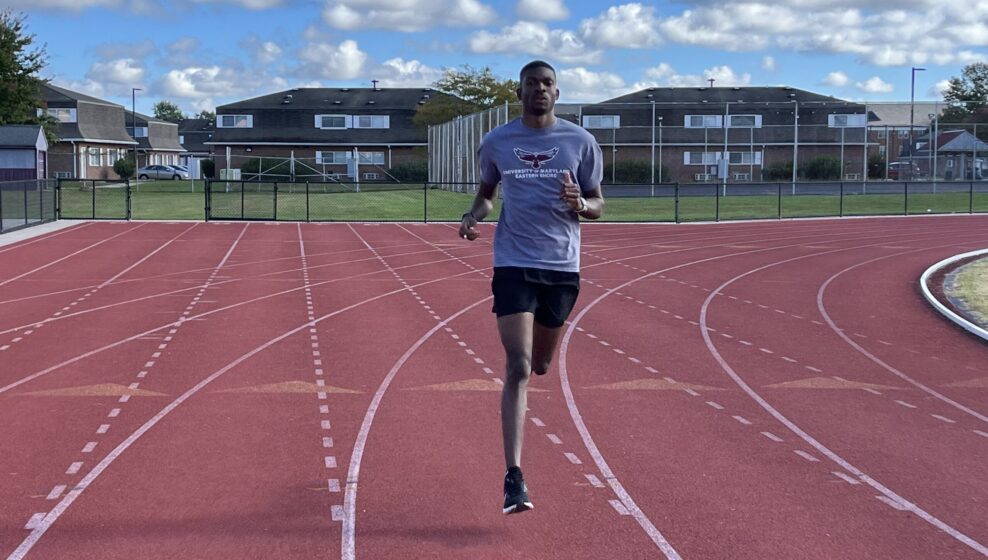“Learn Anywhere, Lead Everywhere.” – Now launching an online Bachelor of Sport Management degree (in-person and hybrid classes still offered)
The Bachelor of Sport Management program at the University of Maryland Eastern Shore aims to produce graduates who excel in the multifaceted landscape of
the global sports industry. The goal of the Sport Management program is to prepare students to enter into the sport management industry as athletic administrators, coaches, scouts, managers, Olympism in Action, and Sport-for-Development practitioners at the interscholastic, intercollegiate, and professional level for the state of Maryland and global agencies. By integrating the Olympic ideals with foundational sport and social business principles blended with specialized sports for good knowledge, the program endeavors to nurture professionals who can lead, innovate, and address the evolving challenges of sports management in the 21st century.
This program offers a dynamic blend of academic rigor and real-world application. Spanning the realms of sports and cause-related marketing, event management and coordination, financial strategy, fundraising, and legal considerations, students are introduced to the intricacies of managing both athletes and sporting events. Embedded within the curriculum are opportunities for hands-on experiences, internships, community-based learning, and case studies, ensuring students are industry-ready upon graduation. Furthermore, the program emphasizes the importance of strategic management, global perspectives, social innovation and effective communication skills, preparing graduates to navigate and excel in the complex, fast-paced world of sports management.
PROGRAM OBJECTIVES
Upon completing the Bachelor in Sport Management program at the University of Maryland Eastern Shore, students will be able to:
- Exhibit leadership and managerial qualities within and outside the sport environment, fostering team dynamics, and promoting a collaborative environment in sports settings.
- Design, implement, and assess effective sport-for-good and cause-related sports marketing strategies, including sponsorship, public relations, new technology and fundraising campaigns.
- Analyze and manage budgets, understand revenue generation, and practice sound financial decision-making within multiple sport sectors.
- Understand the psychosocial impact and processes associated with sports participation and the societal contributions of sports to the diverse community.
- Navigate the legal aspects of the sports industry and how it relates to intramural, recreational, interscholastic, and intercollegiate athletics.
- Develop strong written and oral communication abilities, tailored for diverse stakeholders including athletes, sponsors, media, and fans.
- Apply sport management, leadership, and sport for development (SFD) theories and practices in diverse sporting contexts including event planning, organizational management, and facility management
- Engage in the structure, functions, and dynamics of the global sports industry through internship and practicum experiences.
- Gain knowledge related to the integration of the Olympic ideals with Olympic studies, social entrepreneurship, and social business.
- Learn how to embrace and infuse the Olympic ideals and Olympism in Society across fragile regions and communities in need.
DEGREES OFFERED
Bachelor of Science – Sport Management
DEPARTMENT REQUIREMENTS
The admission of students in the undergraduate program in the Sport Management program is based upon the general requirements of the University. Sport Management majors must complete a minimum of 120 credits hours of University courses.
The Bachelors of Sport Management program will be offered as an undergraduate degree consisting of 120 credits, with 39 credits of general education, 33 credits of major core, 15 credits of major electives, 24 credits of support courses, and 9 credits of free electives. The curriculum integrates the areas of interscholastic and intercollegiate athletic administration, business, digital media, and exercise science, allowing students to merge the intricacies of sport to the challenges of business and health. Classes are offered in a mixture of in-person, hybrid, or online modalities to accommodate any student learner’s lifestyle and needs.









